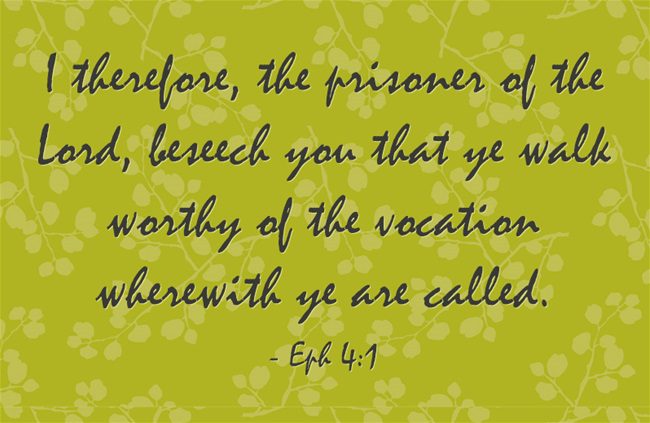What is the biblical definition of beseech? Why should we need to know this?
A Secular Definition of Beseech
We don’t use the word “beseech” anymore or at least much in our day but in the day in which the King James Bible was written, it was a commonly used word. The definition of beseech means to ask someone earnestly to do something or ask someone for something and it comes close to the word “beg,” “plead” or “urge” which is more common today. If you beseech someone for something then you are begging urgently and anxiously and it is more than just an earnest request but how does the Bible define the word beseech? How do the authors of the Bible in both the Old Testament and the New use this word?
Beseeching is Pleading
I had to use the King James Version as the word beseech is not in the more modern translations as most use the word “urge” or “plead” as in Hebrews 13:19 which says “But I beseech you the rather to do this, that I may be restored to you the sooner” and in Hebrews 13:22 “And I beseech you, brethren, suffer the word of exhortation: for I have written a letter unto you in few words.” In these verses, the author of Hebrews is pleading with his audience to do something. This is how Peter uses it when writing “Dearly beloved, I beseech you as strangers and pilgrims, abstain from fleshly lusts, which war against the soul” (1st Pet 2:11). Peter is pleading urgently or almost begging the church to abstain from the earthly, fleshly lusts which makes war with our souls. This war is very much like what Paul experienced in Romans chapter seven.
Beseeching in the Old Testament
When Hezekiah was near death (Isaiah 38:1) he prayed “Remember now, O Lord, I beseech thee, how I have walked before thee in truth and with a perfect heart, and have done that which is good in thy sight. And Hezekiah wept sore” (Isaiah 38:3) so basically here the use of the word “beseech” is begging God to spare his life and what was God’s answer? “Then came the word of the Lord to Isaiah, saying, Go, and say to Hezekiah, Thus saith the Lord, the God of David thy father, I have heard thy prayer, I have seen thy tears: behold, I will add unto thy days fifteen years” (Isaiah 38:4-5) so God answered Hezekiah’s prayer and extended his life by fifteen years. I believe that in prayer we should be beseeching God or pleading urgently with God for Him to answer our prayer. If our prayers are casual or just going through the motions, God will see in our hearts that we’re not really seriously passionate about seeking His help and He will not be as likely to answer our prayers. There is nothing wrong with pleading for God to answer our prayers because it shows our urgency and the importance of our requests.
The Psalmist’s Plea
When the psalmist uses the word beseech, it is certainly used in the context of petitioning God’s help in one of the strongest manners possible as we read in Psalm 116:4 where the psalmist is pleading for his life, much like Hezekiah did, in writing, “Then called I upon the name of the Lord; O Lord, I beseech thee, deliver my soul.” When Jonah was so angry after the repentance of Nineveh as to wish himself dead he prayed to God “Therefore now, O Lord, take, I beseech thee, my life from me; for it is better for me to die than to live” (Jonah 4:3). The uses of the word beseech are used in the psalms and in Jonah for completely different purposes here; one is to spare the psalmist’s life and the other is to take Jonah’s life but both are used with great passion as if they were begging God to do something for them and in these cases, one was to preserve his life while the other was to take his life.
Paul’s Use of Beseech
Paul had a different use of the word beseech and typically he was pleading with the church to be more Christ-like as in Ephesians 4:1 where he wrote, “I therefore, the prisoner of the Lord, beseech you that ye walk worthy of the vocation wherewith ye are called.” That should be the goal of every believer in Christ. When Paul was defending himself in Jerusalem before a multitude of angry Jews he said “I am a man which am a Jew of Tarsus, a city in Cilicia, a citizen of no mean city: and, I beseech thee, suffer me to speak unto the people” (Acts 21:39) so here Paul was pleading with both the church at Ephesus and in defending himself in Jerusalem that his audience would listen to what he was saying.
Conclusion
Beseech is used in the urgency of prayer, in the pleading of other believers to do something, and even in petitioning those who were hostile to someone or something. I express this same idea of beseeching people in the church that I pastor to grow in the grace and knowledge of our Lord (2nd Pet 3:18) and for those readers who have not yet repented and trusted in Christ. Why would I care? It is because, like God, I don’t wish any to perish apart from Christ (2nd Pet 3:9). For this cause, I am willing to be made fun of, scorned, ridiculed, and be despised because I am purely motivated to save as many as my God would call. I am willing to endure this shame for the cross of Christ on account of Him Who saved me so that others too might be saved so I beseech you who have not yet trusted in Christ to do so at this very moment for we all have an appointment with our Maker (Heb 9:27) and it will not go well for those who refuse to repent and believe (Rev 20:12-15).
Article by Jack Wellman
Jack Wellman is Pastor of the Mulvane Brethren church in Mulvane Kansas. Jack is also the Senior Writer at What Christians Want To Know whose mission is to equip, encourage, and energize Christians and to address questions about the believer’s daily walk with God and the Bible. You can follow Jack on Google Plus or check out his book Blind Chance or Intelligent Design available on Amazon.
















